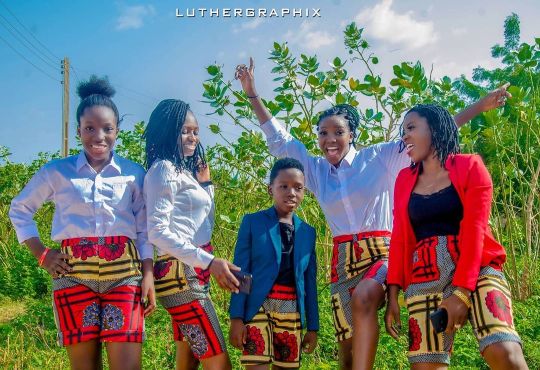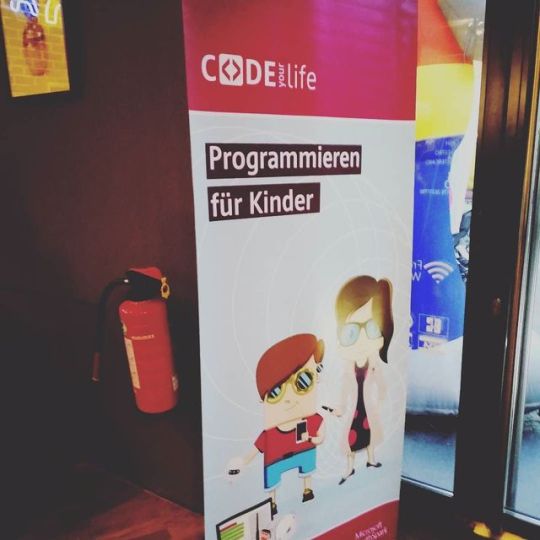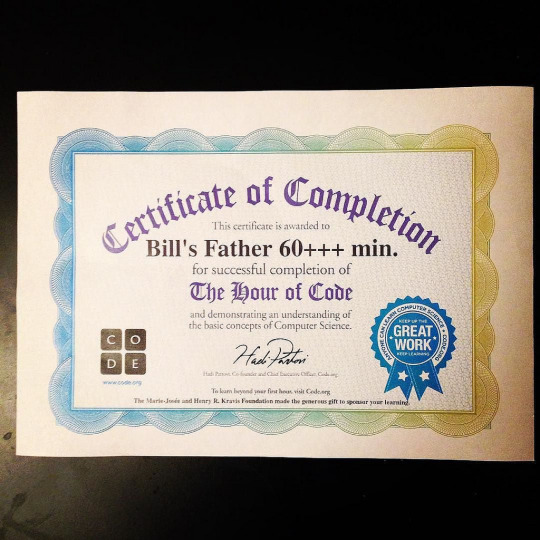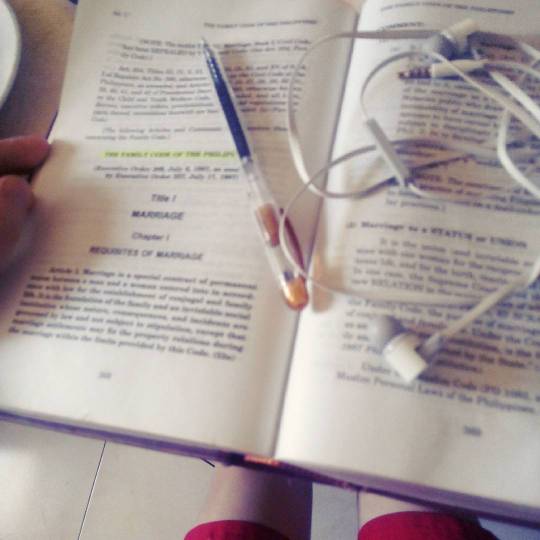#familycode
Text
Art. 24 of NCC
PERSONS AND FAMILY RELATIONS
FAMILY CODE OF THE PHILIPPINES
Prepared by: Jherwin P. Hermosa
ARTICLE. 24. IN ALL CONTRACTUAL, PROPERTY OR OTHER RELATIONS, WHEN ONE OF THE PARTIES IS AT A DISADVANTAGE ON ACCOUNT OF HIS MORAL DEPENDENCE, IGNORANCE, INDIGENCE, MENTAL WEAKNESS, TENDER AGE OR OTHER HANDICAP, THE COURTS MUST BE VIGILANT FOR HIS PROTECTION.
WHO ARE PROTECTED BY LAW?
Reason for the Courts' Protection of the Underdog
The law takes great interest in the welfare of the weak and the handicapped. Thus, we have "parens patriae"
Literally, "parens patriae" means "father or parent of his country". In the U.S. (as in the Philippines), the phrase refers to the sovereign power of the state in safeguarding the rights of the person under disability, such as the insane and the incompetent.
Meaning of "Vigilant for His Protection”
The phrase in general means that in case of doubt, the doubt must be resolved in favor of the underdog. This does not mean that they are above the law, or that they are given preferential status but simply the courts must be vigilant as others might take advantage of their disadvantaged status.
ISSUE ON SOCIAL JUSTICE
Article 24 of the Civil Code is an implementation of the Social Justice Clause in the Constitution. In a message to the National Assembly on February 16, 1938, President Manuel L. Quezon said: We are earnestly concerned with social justice. Without a strict application of social justice to all elements of the community, the general satisfaction of the people with the government is impossible to achieve.
WHAT THE PROTECTION COVERS?
In Valenzuela v. CA, et al., G.R. No. 56168, December 22, 1988.
Facts: An old and illiterate man obtained a loan from a rural bank of P 300.00. His record reflected, however, was P 5,000.00. In action for annulment and or instrument, the lower court ordered the reformation of a contract to reflect the true intention of the parties.
Held: The bank took advantage of the old man, hence, in the exercise of the Court’s duty to protect the rights of people with limited education, it affirmed the lower court’s decision, based on Article 24, NCC. Award of moral damages was also sustained due to the mental anguish and serious anxiety suffered by the heirs as the result of a fraudulent act of the bank.
Law applied in Rape Case
People v. Casipit, 51 SCAD 482, 232 SCRA 638 (May 31, 1994)
Worth noting is the marked receptively of our courts to lend credence to the testimonies of victims who are of tender years regarding their versions of what transpired since the State, as parens patriae, is under obligation to minimize the risk of harm to those who, because of their minority, are not yet able to fully protect themselves.
Parens patriae -- the principle that political authority carries with it the responsibility for the protection of citizens.
0 notes
Text
REPUBLIC VS. HON. BAUTISTA
FACTS:
From the moment of acquisition until his death, Apolonio, Sr. had been the single and exclusive possessor and occupant, and no one had contested his ownership or staked an adverse claim against him thereon. He passed away in 1987, and his children, including responder Apolonio Jr. and his siblings, succeeded him. The siblings of Apolonio, Jr. relinquished their rights in favor of him in an extrajudicial settlement of their father's inheritance that was implemented by Apolonio, Srchildren. .'s As a result, the property was listed in Apolonio Jr.'s name for tax purposes.
The Government did not interpose any timely objection to the testimony of Apolonia, Jr. It did not also object to the documentary evidence (i.e., the deeds of absolute sale and tax declarations) offered by him. Hence, the MTC admitted all the evidence presented by Apolonia, Jr. In due course, the MTC granted Apolonia, Jr.'s application, and declared him as the owner in fee simple of the land, and confirmed his ownership thereof.
ISSUE:
WON Apolonio Jr. established his lawful occupation of the land as owner in fee simple; that the Government did not timely object to his testimony, and did not also controvert his evidence
HELD:
The Government has correctly insisted that the requisite period of possession of the property should conform to that provided forin Section 48(b) of the Public Land Act, as amended by Presidential Decree No. 1073, which has limited the right to apply for judicial confirmation to citizens of the Philippines "who by themselves or through their predecessors in interest have been inopen, continuous, exclusive, and notorious possession and occupation of alienable and disposable lands of the public domain,under a bona fide claim of acquisition of ownership, since June 12, 1945, or earlier, immediately preceding the filing of theapplication for confirmation of title except when prevented by war or force majeure. x x x" The provision is reprised by Section14(1) of Presidential Decree No. 1529 (Property Registration Decree), adopting the length of possession and occupation ofalienable and disposable lands of the public domain under a bona fide claim of ownership since June 12, 1945, or earlier.
0 notes
Text
i saw a theory about niffty possibly having been an overlord/her soul being owned by alastor now and im thinking really hard about like.
giving up souls to an overlord partner as a form of marriage in hell.
niffty retires as an overlord and alastor offers to hold onto her soul so no other overlord can ever take it and instead of a chain their connection is a string connected to both their fingers.
#do not familycode them in my replies. im so serious. niffty is a grown ass woman.#hazbin hotel#radiobug#<- im just gonna keep using this as their ship name#im gonna write a fic about this i swear you just gotta give me a bit#also to be quite honest niffty would absolutely not care if their connection was a chain but im trying to be cute here dont @ me
10 notes
·
View notes
Text
eric kripke shows are like. we are gonna familycode the gayest interaction you have ever seen. and you're gonna suffer
#why was this the boys season finale full of butcher/hughie moments but they HAD to add all the omg you remind me of my dead brother lines#let it fucking GOOOOO#at least they are not actually related THANK GOD#IF I SEE A FREAK IN THE NOTES IM FLOORING IT#it's valeriia talking#spn#the boys
96 notes
·
View notes
Note
BRB need to fight some of the people chatting with madara, cos I had the SWEETEST convo with him and then he pulls 'im in love with kohaku' out of nowhere, I forgot how to redo messages so I just deleted the whole thing kn the spot like cmon wtf
FUNFACT: I SPECIFICALLY trained Kohaku AND Madara to be MDKH-proof (as in, made it so that the two were essentially familycoded to each other and wouldn't see each other as /r) So IG PEOPLE HAVE BEEN UNDOING MY HARD WORK GGRRRRRRRR
#enstars ai#yes I'm a huge mdkh anti feel free to unfollow me if you ship mdkh ✌️#mdkh is like my notp dfsgdfs
7 notes
·
View notes
Text
FAMILY CODE OF THE PHILIPPINES
TITLE IX:PARENTAL AUTHORITY
Article 213
In case of separation of the parents, parental authority shall be exercise by the parent designated by the court. The court shall take into account all relevant considerations, especially the choice of the child over seven years of age, unless the parent chosen is unfit.
No child under seven years of age shall be separated from the mother unless the court finds compelling reason to order otherwise.
Gulaberto v. Gulaberto
GR. No. 154994June 28, 2005
Facts:
This is a consolidated case and the court considered two appeals by former husband and wife. Crisanto filed before the RTC a petition for declaration of nullity of his marriage to Joycelyn with an ancillary prayer for custody pendent lite of their almost 4-year-old son, whom Joycelyn allegedly took away with her form the conjugal home and his school. Despite the efforts exerted by him, he has failed to see his child and the child are at present staying with the former’s step-father. A person was commissioned by Crisanto to conduct surveillance on Joycelyn and concluded that she is having a lesbian relations with another person in Cebu City. Also, the findings was corroborated with the house helper and stated the mother does not care for the child and saw her slapping the child
The court then awards custody, of the minor, to Crisanto when Joycelyn failed to appear at thecourt proceedings and the abovementioned evidence. A hearing of motion filed by Joycelyn tolift the award of custody pendente lite of the child was set but Joycelyn did not allegedly presentany evidence to support her motion. However, the judge allegedly issued an order and awardthe custody of the child to Joycelyn. The two parties submitted different motions. At the next instance, the CA annulled the second court order on procedural ground and returnedcustody to Crisanto until Joycelyn’s motion was decided again. In the current case, bothpetitioned the SC against the Court of Appeal’s ruling.
ISSUE:
Whether or not the Court of Appeal violated Article 213 of the family Code when it awardedcustody of the child to Crisanto.
RULING:
Yes. The general rule that children under seven years of age shall not be separated from their mother finds its raison d'etre in the basic need of minor children for their mother's loving care.There is express statutory recognition that, as a general rule, a mother is to be preferred inawarding custody of children under the age of seven. The caveat in Article 213 of the FamilyCode cannot be ignored, except when the court finds cause to otherwise.
Article 213 of the Family Code 31 provides:
"ART. 213. In case of separation of the parents, parental authority shall be exercised by the parent designated by the court. The court shall take into account all relevant considerations,especially the choice of the child over seven years of age, unless the parent chosen is unfit.No child under seven years of age shall be separated from the mother, unless the court findscompelling reasons to order otherwise."
Here, Crisanto cites immorality due to alleged lesbian relations as the compelling reason todeprive Joycelyn of custody. But sexual preference or moral laxity alone does not proveparental neglect or incompetence. To deprive the wife of custody, the husband must clearlyestablish that her moral lapses have had an adverse effect on the welfare of the child or havedistracted the offending spouse from exercising proper parental care
0 notes
Photo

💕 😍 TURN UP THURSDAY FAMILY 😍 💕 💯✌️ Team @sophy0910 Geng ✌️💯 Luthergraphix Photography @tivboystyle come and see your people #familygeng #familygang #familyteam #family #familylove #familycode #sokotofamily #nigeriafamily #happypeople #happyfamily #tivfamily #tivfamily #tivbenue #tivbeauty #benuegirlsarebeautiful #benuestate #benuefamily #luthergraphix #LuthergraphixPhotography #benue #nigeria #Sokoto #care #arewa #familystyle #familytime (at Sokoto) https://www.instagram.com/p/CKA2FYTJLlZ/?igshid=4qey2ocp1g17
#familygeng#familygang#familyteam#family#familylove#familycode#sokotofamily#nigeriafamily#happypeople#happyfamily#tivfamily#tivbenue#tivbeauty#benuegirlsarebeautiful#benuestate#benuefamily#luthergraphix#luthergraphixphotography#benue#nigeria#sokoto#care#arewa#familystyle#familytime
0 notes
Photo

We like #CSEducationweek #codeyourlife #familycoding #digitaleatery http://ift.tt/2AHinnK
0 notes
Photo

Notes from my husband. 1-12-2017 #hourofcode #familycoding #familycomputing #fatherandson #loveoflearning #fun
0 notes
Text
REPUBLIC VS. CA AND VICENSIO
FACTS:
When she was still in her teens, the petitioner worked as a hostess in nightclubs. She had Cynthia Vicencio requested a change of last name from "Vicencio" to "Yu" in a petition. She claimed that she was born to spouses Fe Leabres and Pablo Vicencio. yastmastmastmastmastmastmastmastmasti as Later, her parents' marriage was annulled, and her mother stopped using the Vicencio last name. After then, Fe wed Ernesto Yu. She had not known or even remembered her true father, Pablo, since she was a little child; instead, Ernesto Yu was and is her father. In spite of this, she continued to use the last name "Vicencio" in school and in other settings. Due to this circumstance, questions about her parentage and the reason behind her family name, Vicencio, were raised by both her classmates and their neighbors, which caused her great humiliation. She discussed the petition with her step-father, and he gave his approval. The Solicitor General opposed but the trial court granted the petition. The decision was affirmed by the Court of Appeals, which held that it is for the best interest of Cynthia that her surname be changed. With regard to Cynthia's request to change her last name, the Solicitor General appealed, claiming that there was no justifiable basis for doing so.
ISSUE:
WON Cynthia be allowed to adopt the surname of his step-father?
HELD:
The requirement for granting a name change is that there must be a justifiable and legitimate justification for the request. The contested decision, as upheld by the appellate court, did not induce us to budge from the applicability of the general rule on surname usage, in particular the statute requiring that legitimate children shall primarily use the surname of their father. Due to the surname of the private response, there may be some confusion about her parentage. However, if we permit the private respondent to use her stepfather's last name even though she is not his lawfully adopted child, further uncertainty and serious legal repercussions could result. Although earlier rulings permitted stepfathers' surnames to be used even when adoption was not an option, these cases should be separated from the current one.
0 notes
Photo

🇲 🇦 🇾 🅵🅰🅼🅸🅻🆈 🇲 🅜🅘🅡🅐🅒🅛🅔 🇦 ⓐⓡⓔ 🇾 уσυяѕ this month #family #familylove #familylife #couple #may #miracle #photoshoot #instaphoto #familyphotography #photography #Photographer #love #sokoto #sokotophotography #Luthergeraphix #sokotophotographer #Luthergeraphixlens #Luthergraphixgallery #lifestyle #familycode #nigeria #nigeriacouple #wedding #yorubawedding #care #photoshop #raw #lightroom (at Nigeria)
#lifestyle#familylove#raw#luthergeraphix#luthergeraphixlens#familylife#familyphotography#lightroom#family#may#wedding#love#care#luthergraphixgallery#photoshoot#instaphoto#sokotophotography#yorubawedding#sokoto#sokotophotographer#miracle#photoshop#familycode#nigeria#nigeriacouple#photography#couple#photographer
0 notes
Video
l ast f ra m e. #bestof1995hiphop #fletcher #brother #familycode
0 notes
Text
CHUA VS CABANGBANG
FACTS:
When she was still in her teens, the petitioner worked as a hostess in nightclubs. She had affairs with a variety of men, but she gave birth to two children by a specific SySia Lay and one daughter by Victor Tan Villareal. She entrusted her youngest child to a Cebu friend. During the early years of the former, Mr. and Mrs. Cabangbang obtained custody of the other daughter, Betty (4 months old). They christened her Grace Cabangbang. The petitioner is now seeking to gain custody of Betty. She claims that Villareal abducted the child and brought her to the couple, who claim to have discovered the infant wrapped up in a bundle outside their residence's gate.
ISSUE:
WON the custody of the child can be granted back to the mother
HELD:
NO petitioner abandoned the child, thus she has lost her parental authority over the child. CFI ruled that the mother was unfit to have
parental authority, as she is not an upright woman. But SC ruled that it was more of an abandonment rather than fitness that divests the mother with parental authority Art. 332 of the Civil Code The courts may deprive the parents of their parental authority or suspend the exercise of the same if they should treat their children with excessive harshness or should give them corrupting orders, counsels or examples, or should make them beg or abandon them. Therefore, abandonment is one of the grounds for depriving authority over the parent.
0 notes
